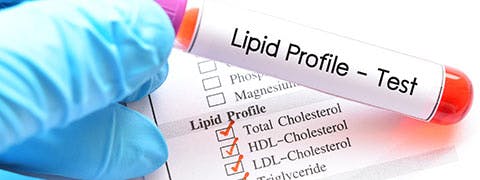Lipid Profile Test: Why It Is Done And What To Expect
A lipid profile test, also known as a Lipid panel or a Lipoprotein panel, is a blood test that measures lipids-fats and fat-like substances-in your blood. Lipids include: · Triglycerides · Cholesterol · High-density lipoproteins (HDLs) · Low-density lipoproteins (LDLs) A lipid profile test can help show whether you have a higher than normal risk for heart disease and stroke. It is important to understand your results in order to make changes to your lifestyle if necessary and to track your progress over time.
What Does A Lipid Profile Test Measure?
A lipid profile is a blood test that measures your levels of total cholesterol, LDL (low-density lipoprotein) cholesterol, HDL (high-density lipoprotein) cholesterol, and triglycerides. This test is used to help assess your risk for heart disease and stroke. Total cholesterol is the measure of all the different types of cholesterol in your blood. LDL cholesterol is often referred to as “bad” cholesterol because it can build up in your arteries and increase your risk for heart disease. Because it aids in the removal of LDL cholesterol from your arteries, HDL cholesterol is frequently referred to as "good" cholesterol. Your blood contains a specific sort of fat called triglycerides. High levels of triglycerides can also increase your risk for heart disease.

The results of your lipid profile will be given as numbers. Your doctor will compare your numbers to what is considered normal and discuss with you what, if any, changes need to be made to help reduce your risk for heart disease.
Who Should Get A Cholesterol Test?
There are a few different scenarios in which your doctor may recommend a cholesterol test. If you have a family history of high cholesterol or heart disease, if you’re a smoker, or if you have diabetes, you may be at increased risk for high cholesterol and should get tested. Your doctor may also recommend a cholesterol test if you’re overweight or obese. If your results come back indicating that your cholesterol levels are high, your doctor will likely recommend lifestyle changes and/or medication to help lower your cholesterol. Lifestyle changes might include eating a healthier diet and exercising more. Medications that might be prescribed include statins, which can help lower LDL (bad) cholesterol levels, as well as niacin and fibrates, which can help raise HDL (good) cholesterol levels.
Preparation For Lipid Profile Test
If your doctor has recommended a lipid profile test, also called a lipid panel or cholesterol test, it is important to know what the test is and why it is being done. A lipid profile is a blood test that measures the levels of certain fats in your blood, including cholesterol and triglycerides. This information can help your doctor determine your risk for heart disease and stroke.
There are no specific preparations required for a lipid profile test. However, it is important to fast for at least 9-12 hours before the test. This means that you should not eat or drink anything other than water during this time period. Fasting will ensure that the results of the test are accurate.
Your doctor will likely give you specific instructions on how to prepare for the test. Be sure to follow these instructions carefully. Once you have fasting, you will be able to have the blood drawn and the lipid profile test will be performed.
